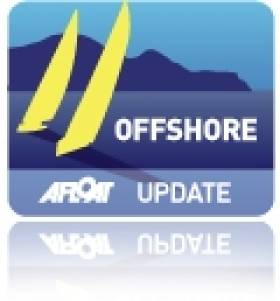Displaying items by tag: Jean Pierre Dick
Champion Jean Pierre Compares Foxall and Peyron
Jean Pierre Dick has been talking about preparations for the defence of his title later this month in an interview on the Barcelona race website. He won the global double-handed race in 2008 with Kerry's Damian Foxall. In the latest interview Dick gives a few interesting insights on Ireland's top offshore sailor and how sailing with him compares with Dick's current partner, the famous French offshore sailor Loick Peyron.
Excerpts below and full article HERE
What are the main differences between Damian and Loïck as sailors and who will how you work together compare with last time?
" Last time Damian was more looking after the boat, if there were things to repair he was the man and maybe more at the front of the boat, I was more into picking the weather. Now with Loïck it will be more equivalent, I will be more equal on the repairs this time which is good for my training for the Vendée Globe. And for sure Loïck is very knowledgeable on his weather analysis, so we will work together. If there is a security decision I am the skipper and the owner of the boat, and the project, and they are my sponsors, so that becomes my task, but I want Loïck to be involved in the strategy and the thinking in this race. In this race what makes you successful is the interaction between the two skippers. It is important that we know work well together, we have done some training together and we have done some weather analysis together, so there will be the same level of information."
What are the main differences between the two?
" Loïck has such huge experience, Damian also has huge experience but it is coming more from the Volvo also, Loïck's (experience) is more....well, everything sailing! So I would say the main difference is Damian is a very physical guy, very strong. Loïck is more using his brain to sail smart, to make less effort. So that is how I see things, but there is a change for sure but I will learn more about both experiences as we go. Loïck has more experience with single and double handed races, maybe I would say more experience over his while life. Damian has been more on more physical races like the Volvo. Both are very able to repair the boat, to sail the boat on their own, they would have been able single handed even though Damian did not do more, he would be very talented to do so."





























































